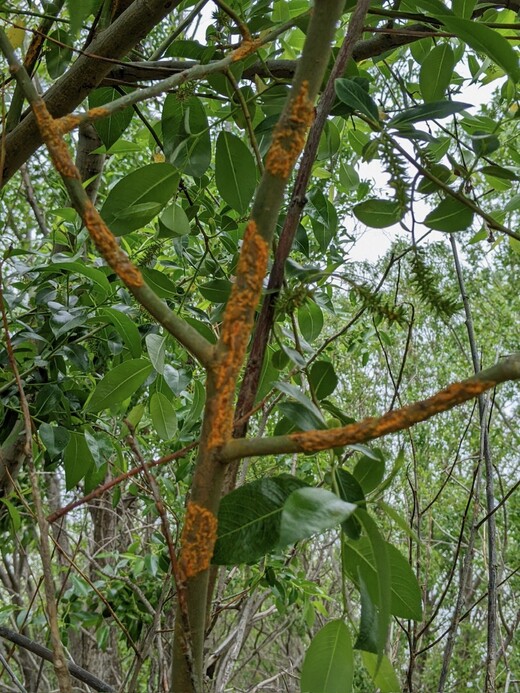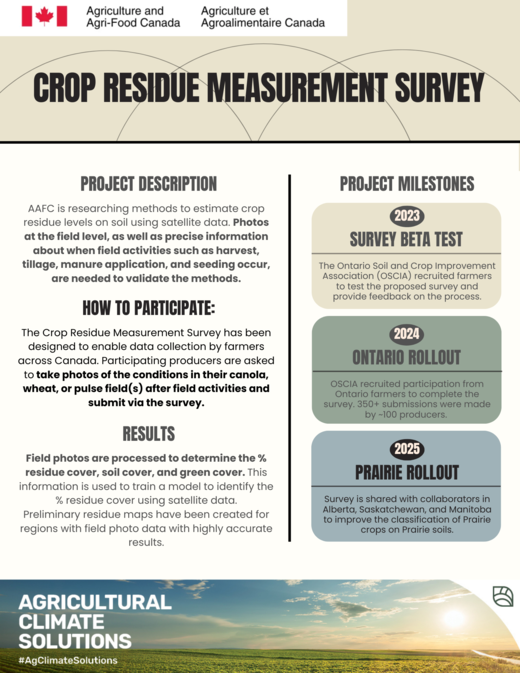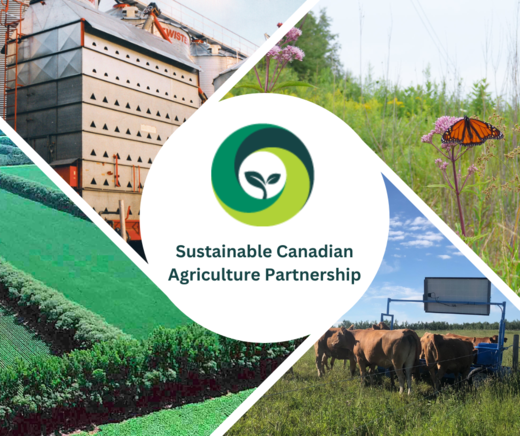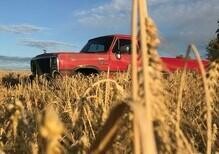
Agricultural Services Quick Links
| Contests & Awards | Workshops | |
| Weed and Plant ID | Agendas & Minutes (ASB) | |
| Farmer's Appreciation | ||
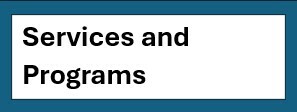
The Agricultural Services Department is directed by Lamont County’s Agricultural Service Board (ASB). The ASB functions as the voice of agriculture by advising and responding to issues of local, provincial and national interest.
The Agricultural Service Board (ASB) and department strives to act with respect to, and assist in, proper land utilization and its production with a view to improving the economic well being of the farmer, and to develop and promote agricultural policies to meet the needs of the agricultural community of Lamont County.
Through County Council, the ASB and Agricultural Service Department work diligently to promote the ASB core values of:
Conservation
We believe in the importance of conserving our natural resources, traditional agriculture, and the family farm.
Client Focus
We believe in doing our best to meet the needs of every client who contacts our office in search of assistance, knowledge, or results.
Program Delivery
We believe in providing the most information possible to all program participants and ensuring the needs of participants are met.
The Agricultural Services Department is legislated to conduct its activities under the Weed Control Act, the Agricultural Pests Act, the Soil Conservation Act and the Animal Health Act. The department and the Agricultural Fieldman support the Agricultural Services Board to meet and make recommendations to Council and the Provincial Minister of Agriculture.
The Agricultural Service Department can be contacted at 780-895-2585 or by email or:
Lamont County Agricultural Services Department is dedicated to ensuring ratepayers are supported through a variety of Agricultural programs on a wide variety of topics. Questions and requests for more information should be directed to the Assistant Agriculture Fieldman.
For a full breakdown of programs provided, please choose the appropriate topic from the list below:
- Environmental Programs
- Includes information on Canadian Agriculture Partnership (CAP) programs, Farm Plans, Environmental Streamline Program, Farm Energy and Agri-Processing Program (FEAP), Farm Health and Safety Producer Grant program, Farm Water Supply program, municipal water management, shelterbelt trees, and Watershed grant programs.
- Grain Bag Roller Recycling Program and Rental Requirements
- Properly rolled and secured grain bags and bagged twine can be dropped off, free of charge, at St. Michael Landfill. Grain bags should be rolled tightly with a mechanical grain bag roller and secured with twine. If the customer has any concerns about the local weather impacting the normal landfill operations, the recommendation should be for the customer to call the landfill to confirm offloading and if there any concerns that particular day.
- Pest Control Programs
- Includes information on clubroot, gopher control, predation control, grasshopper control, beaver control, and additional pest control (including spraying activities).
- Rental Equipment
- Includes information on equipment available for rent, rental rates and additional charges.
- Vegetation Programs
- Includes information on weed control, road side spraying, and mowing and brushing programs.
Canadian Cattle Identification
Lamont County Agricultural Service Board is a third party agent for the Canadian Cattle Identification Agency (CCIA).
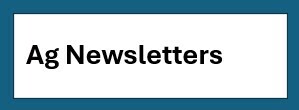

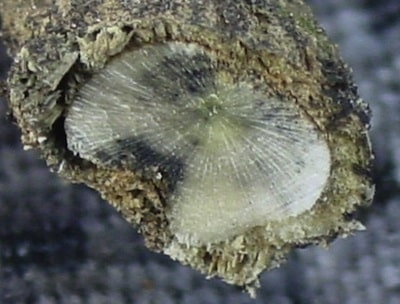
NOTE: Lamont County Ag. Services has Blackleg Monitoring Kits available to producers (free of charge). Stop in at the PW/ASB Building during business hours or call 780-895-2585.
- How to manage weeds now
-
Pre-harvest interval calculator to avoid marketability issues. Test suspicious kochia for glyphosate tolerance. Mowing as soon as possible is the last opportunity to manage glyphosate tolerant kochia before seeds are viable.
- Alberta Insect Pest Monitoring Network
- Pre-harvest disease scouting
- Disease ID tips for pre-harvest scouting | Canola Council of Canada (Tips)
-
Pre-harvest disease scouting tips: Disease ID tips for pre-harvest scouting | Canola Council of Canada
As the crops near maturity, diseased plants often senesce prematurely making sick plants easier to spot against the surrounding green. Here are disease ID tips for verticillium stripe, sclerotinia stem rot, clubroot and blackleg. Send samples for lab testing to capture valuable data for future management, especially cultivar selection based on blackleg race testing.
Willow Rust (Melampsora epitea) occurs on large branches, stems and twig non-native willows (Laurel Leaf mostly). The first case in Alberta was in 2021 from the Slave Lake area. NRCAN - Canadian Forest Service (CFS) published a paper on this rust that is occurring in non-native willows.
The biggest challenges are following (be aware of this fungus and monitor as appropriate):
- Tree mortality or tree decline in these affected trees are showing up usually 1-2 years after tree has been infested;
- Appears to only effect Laurel Leaf Willow leaves; and
- The best control option is pruning it out.
Please monitor any Laurel Leaf Willow (non-native willows typically planted in shelterbelts, windbreaks and urban areas). Infestation typically increases the amount of rust spores. If you find this rust, contact Agricultural Services at 780-895-2585, so it can be tracked and help prevent spread of the disease.
As camping season commences, it is important to be aware of wood-borne diseases, insect infestation and prevention of entry into Alberta. Emerald Ash Borer (EAB) is one such insect that is spread by firewood. Alberta and Lamont County is EAB-free—effective April 2024, the movement of all ash material such as logs, branches, woodchips, & all species of firewood from the affected sites, is restricted. Be advised that firewood is confiscated at all the AB/Montana Ports of Entry. This pest has no threat to human health but is devastating to Ash Trees.
It is present in B.C. and Sask. For more information:
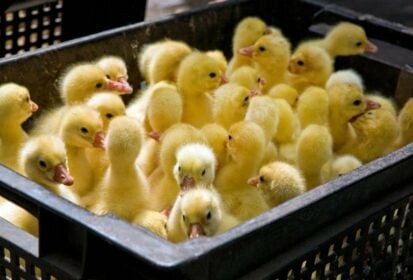
Management and inspection is typically done by the Canadian Food Inspection Agency, and further direction and updates by the Office of the Chief Provincial Veterinarian in Alberta. The following is information, tips and frequently asked questions as it relates to Highly Pathogenic Avian Influenza (HPAI).
If you have any questions, contact the Chief Provincial Veterinarian at 780-427-3448.
Government of Alberta Resources
1. Avian Influenza in domestic birds: alberta.ca/avian-influenza-reportable:
This contains a description of HPAI, how it spreads, clinical signs and links to the Avian Influenza and small-flock poultry fact sheet and Open Data Portal: open.alberta.ca/dataset/964f3b23-6898-4ea8-aec0-848cdf135215/resource/af200969-9424-4a1d-8d52-83d816d1edd3/download/2015-avian-influenza-small-flock-poultry-september-2015.pdf.
2. Avian Influenza in Alberta: alberta.ca/h5n1-avian-influenza-in-alberta:
H5N1 avian influenza in Alberta: updates on the avian influenza situation in Alberta, including risk level, information for general public, where to report, how to mitigate and the Office of the Chief Provincial Veterinarian’s updates for producers.
Government of Canada: Canadian Food Inspection Agency (CFIA)
1. Avian influenza (bird flu): inspection.canada.ca/en/animal-health/terrestrial-animals/diseases/reportable/avian-influenza:
Services and information, including “Latest bird flu situation in Canada”, facts about avian influenza, overview of how Canada prevents etc.
2. Avian Biosecurity – Protect Poultry, Prevent Disease: inspection.canada.ca/en/animal-health/terrestrial-animals/diseases/reportable/avian-influenza.
3. Toolkit for producers and livestock sector: inspection.canada.ca/en/animal-health/terrestrial-animals/diseases/reportable/avian-influenza/producers-and-livestock-sector.
4. “Keep your birds safe” infographic: inspection.canada.ca/sites/default/files/legacy/DAM/DAM-animals-animaux/STAGING/text-texte/keep_your_birds_safe_1642789667329_eng.pdf.
5. Tips for bird owners: inspection.canada.ca/en/animal-health/terrestrial-animals/diseases/reportable/avian-influenza/tips-bird-owners.
6. Surveillance: inspection.canada.ca/en/animal-health/terrestrial-animals/diseases/reportable/avian-influenza/surveillance.

Upcoming Workshops
- Original Grazing School for Women (September 10-11 at Ardmore Community Hall. Register at eventbrite.ca/e/the-original-grazing-school-for-women-tickets-1564015214609?aff=oddtdtcreator).
- In the Know Workshop (TBD).
- Shelterbelt Planning & Fall Tree Care Workshop: September 10 at Wye Community Hall – 780-464-8080 or Strathcona.ca/falltreecare.

Funding, Surveys and Other Ag-related Opportunities

The Agricultural Service Boards Provincial Committee (ASBPC) in response to a request from (Shadow Agricultural Minister) MP John Barlow, has created an 11 question survey with opportunity to comment and upload pictures.
Complete the 2025 ASB Gopher Impact Survey – Agricultural Service Boards
Other information:
- ASB Position Paper on Richardson's Ground Squirrel Control
- Evaluation of Alternatives to Strychnine (2023)
- Strychnine and Richardson's Ground Squirrels
- Richardson's Ground Squirrels update (2025)
- Gophers (Richardson's Ground Squirrels) are native and designated as nuisance in Alberta Pest Act.
- Gophers are an issue for the Black, Dk Brown and Light Brown soils in the Prairies
- The decision to deregister Strychnine for pest control (RGS and predators) was made by PMRA - an agency of Health Canada.
- Ministers of Agriculture from affected provinces, as well as municipal associations have been engaging with PMRA, Health Canada and the Federal Minister of Agriculture.
As part of the Agricultural Climate Solutions program, Agriculture and Agri-Food
Canada (AAFC) is researching crop residue mapping using satellite imagery. They are
working to validate and improve the method using photos of residue conditions
from fields across Canada; this year the focus is on collecting field photos of
canola, wheat, and pulses to improve residue mapping capabilities in the Prairies. The data collected is used to support national scale modelling of greenhouse gases, carbon sequestration inventories, and soil health monitoring. Producers interested in participating in the survey to ground truth the residue maps are asked to snap a couple pictures of the ground in their field using a smart phone after completing a field operation (harvest, tillage, seeding, residue removal, manure application), and submit
these photos in the survey app along with the date of the field activity – the survey is designed to be completed while farmers are already on their fields for their field operations. Producers interested in participating can scan the QR code on the right, or visit lamontcounty.ca/agservices (surveys) for more details and survey access.
Crop Residue Measurement Survey Protocol
QR Code to the SURVEY
On-Farm Climate Action Fund (OFCAF) provides financial support to producers to accelerate their adoption and implementation of on-farm Beneficial Management Practices (BMPs) to lower Greenhouse Gas (GHG) emissions, support production efficiency, sustainability and resiliency on their farm operations.
To assist producers with their adoption of new BMPs, the program will offer producers resources to support BMP implementation and provide BMP design recommendations.
RDAR is a delivery partner, selected by Agriculture and Agri-Food Canada, to distribute funds associated with this program.
Learn more and to apply: https://rdar.ca/funding-opportunities/ofcaf.
Move My Licence is a call for water licence holders in Alberta to ‘move’ their water licences into the Digital Regulatory Assurance System (DRAS). Effective February 2024, water licences issued under the Government of Alberta Water Act and precedent legislation by the Alberta government before November 2021 will move to the Digital Regulatory Assurance System (DRAS).
How to Move My Licence (fact sheet) and video tutorial.
Learn more via the Government of Alberta.
To support continued innovation, growth and prosperity, the Sustainable Canadian Agricultural Partnership (Sustainable CAP) has launched its programs. This 5‐year (2023-2028), $3.5 billion investment includes $1 billion in federal programs and activities and $2.5 billion in cost-shared programs and activities by federal-provincial-territorial governments. The Sustainable CAP framework represents a cost-shared federal-provincial investment of $508 million over five years towards strategic programs and services for the agriculture and agri-food industry in Alberta.
Sustainable Canadian Agricultural Partnership in Alberta | Alberta.ca
In Alberta, CAP will deliver programs developed in consultation with stakeholders, and is organized under the following themes:
- Emerging Opportunities (processors, organizations)
- On-Farm Efficiency (producers, farmers, ranchers)
- On-Farm Value Added (producers, farmers, ranchers)
- Resiliency and Public Trust (organizations, processors)
- Resilient Agricultural Landscape (producers, farmers, ranchers)
- Value-Added (processors)
- Water (producers, farmers, ranchers)
Previously: Environmental Sustainability and Climate Change; Products, Market Growth and Diversification; Science and Research; Risk Management; and Public Trust.
For a list of CAP Programs go to Sustainable CAP Overview | Alberta.ca (alberta.ca/sustainable-cap-overview).
See all the eligible programs: alberta.ca/sustainable-cap-programs
For more information please contact Agricultural Services at: 780-895-2585.
Below is an update with suggested actions from Alberta Pork (letters can be updated as relevant for eligible farm machinery - see Bill C-234, an: Act to amend the Greenhouse Gas Pollution Pricing Act at https://www.parl.ca/DocumentViewer/en/44-1/bill/C-234/third-reading, as the Alberta Pork letter is focused directly for those raising hogs, and there are other proposed exemptions):
An exemption to Canada’s carbon tax on fuels used to heat barns and dry grains continues to move forward, with Bill C-234, an Act to amend the Greenhouse Gas Pollution Pricing Act, passing second reading in the Senate this month.
The bill was passed in the House of Commons earlier this year, with support from Conservative, New Democrat, Bloc Québécois and Green MPs, with Liberal MPs in opposition to it.
Alberta Pork's position, consistent with other provincial pork producer organizations and the Canadian Pork Council (CPC), is that the carbon tax is an unfair cost on top of already-high input costs for farmers. We and our partners have been advocating for an exemption, and we're almost there, with your support!
How Farmers Can Help
Bill C-234 is now at the final stage before potentially becoming law. There are 89 Senators in Canada, including four from Alberta: Patti LaBoucane-Benson, Paula Simons, Karen Sorensen and Scott Tannas.
Alberta Pork is asking all producers to send letters to Alberta’s Senators, urging them to vote in favour of the bill. Brent Moen, Past Chair, Alberta Pork previously sent a letter to all four Senators in that regard.
For producers wishing to support Alberta Pork's request, this letter template can be used and customized as you see fit, but please remember to use respectful language and avoid negative political comments. The letter can be printed at home, then mailed by Canada Post, at no charge for postage, to the following address (using only one Senator’s name per letter):
Hon. Patti LaBoucane-Benson
Hon. Paula Simons
Hon. Karen Sorensen
Hon. Scott Tannas
The Senate
Ottawa, ON
K1A 0A4
Please be sure to address the envelope the same as your letter and fill in all grey-highlighted fields, finished with a hand-drawn signature.
When looking at all alternatives for feed supplies, feed testing is always a good option to explore to ensure animal health and welfare. A visual assessment may not be accurate enough to assess quality & may lead to costly alternatives to maintain health.
Visit Feed Quality, Testing & Analysis for Beef Cattle - BeefResearch.ca for details on testing & tools.


